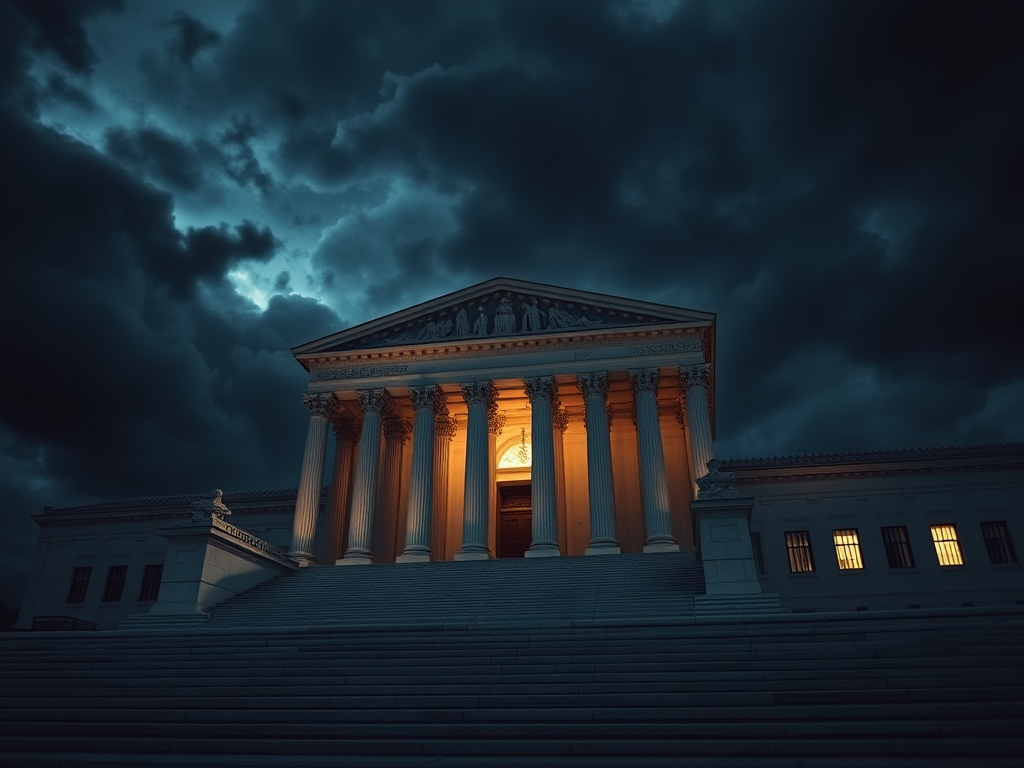(Washington, DC) – Judicial Watch announced today that oral argument will be held on Wednesday, October 8, 2025, in the Supreme Court of the United States in a historic case filed on behalf of Congressman Mike Bost and two presidential electors, who are before the court to vindicate their standing to challenge an Illinois law allowing the counting of ballots received up to 14 days after Election Day (Rep. Michael J. Bost, Laura Pollastrini, and Susan Sweeney v. The Illinois State Board of Elections and Bernadette Matthews (No. 1:22-cv-02754, 23-2644, 24-568)).
The case concerns whether Bost and the electors have standing to challenge Illinois’ counting of ballots that arrive after the Election Day deadlines set by federal law. The Election Day lawsuit was initially filed on May 25, 2022. A lower court dismissed the claim for lack of standing, which was upheld by a split 2-1 panel for the U.S. Court of Appeals for the Seventh Circuit.

“This is the most important Supreme Court election law case in a generation. Too many courts have denied candidates their right to challenge unlawful election rules such as the outrageous act of counting ballots that arrive AFTER Election Day. American citizens concerned about election integrity will tune in closely to Judicial Watch’s Supreme Court arguments Wednesday,” said Judicial Watch President Tom Fitton.
Judicial Watch’s September brief to the High Court states:
Illinois counts mail-in ballots received up to two weeks after Election Day. Petitioners, candidates for federal office, claim that under controlling federal law that is two weeks too long. As a result, Illinois is counting unlawful ballots and producing inaccurate vote tallies, while simultaneously hurting petitioners’ prospects at the ballot box and injuring their pocketbooks.
Judicial Watch submits that the Seventh Circuit’s decision is wrong and dangerous:
It is wrong because candidates have standing to challenge the rules that govern their elections, especially when their merits theory (which must be credited for standing purposes) is that the challenged rule produces an inaccurate final tally. At a minimum, the candidate has standing when (as here) he plausibly alleges that the challenged rule will harm his electoral prospects and reduce his bank balance because he needs to pay campaign staff an extra two weeks. And the decision is dangerous because it forces judges to play political prognosticators, skews standing rules to favor certain kinds of candidates, and funnels election disputes to the worst possible context—namely, after the election where judges are asked to declare political winners. This Court should reverse.
Judicial Watch states that Bost has standing to challenge the Illinois law:
At the very least, Congressman Bost has standing to challenge the Illinois ballot-receipt deadline here, as a host of diverse amici confirm. Congressman Bost plausibly alleged a substantial risk that counting mail-in ballots received after Election Day will harm his electoral prospects both by risking electoral defeat and reducing his margin of victory. The plausibility of those allegations was amply reinforced by the Illinois Democratic Party’s attempted intervention and voting and litigation patterns nationwide. And he has also plausibly alleged a classic pocketbook injury because he expended additional campaign funds as a direct result of the state’s extended deadline for receiving mail-in ballots. Here too, the notion that an election artificially extended a fortnight costs more than one that ends on Election Day hardly strains credulity. The state’s contrary arguments lack merit. Read more..





